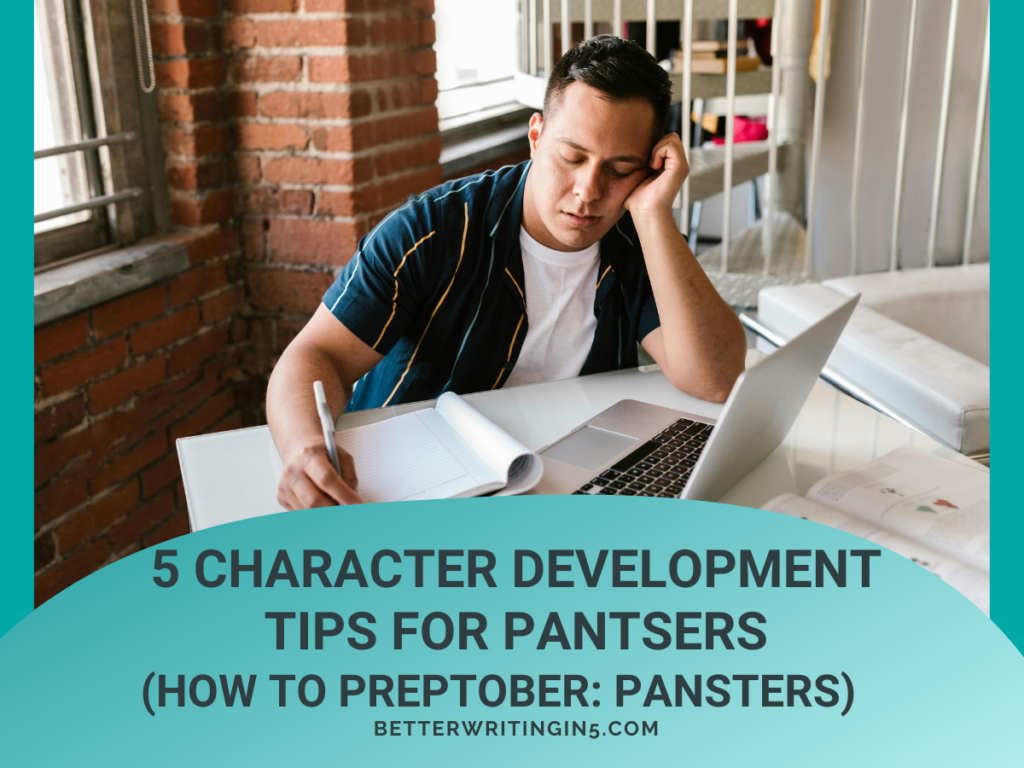Hey Writers! Can you believe Preptober is nearly over already? Surely, many of you are waist-deep in your plots by now and itching to draft some juicy scenes. Others might have analysis paralysis, and that’s completely okay. Since last week we covered our top Preptober strategies for Plotters, this week, we’ll be digging into our best tips for those who are allergic to outlines—Pantsers. You might feel that too much planning could kill the joy of penning your next masterpiece, but diving into a draft without fully developed ideas could make for a much more stressful experience. Avoid overwhelm by nailing down a few key elements—starting with the most pivotal: your main character.
Here are 5 questions Pantsers should ask when developing characters in Preptober:
1. Who are they?
This is your opportunity to get a feel for whose story you’re about to tell. Is it a gardener, a dogwalker, or someone much deeper than their occupation? Don’t worry. If worksheets give you hives, we’ve got you covered. Draw a picture, make a Pinterest board with model characters and outfits. If online generators aren’t your thing, pull names—or even birthplaces—out of a hat. Get the mundane details out of the way so you can focus more energy on getting to know this person and developing their story.
2. What’s their problem?
If you want readers to care about your MC, you don’t want to make them perfect. Readers want an MC they can relate to, someone with flaws and/or a big problem to solve. This will give your story complications and tension, making for a much more satisfying reading experience. There are all kinds of books and charts dedicated to identifying character flaws. Online generators could make this easier too. Pick 6 potential flaws from a list and roll a die to make your choice. Next? Explore. How’d they get this problem and how does it hold them back today? Jot down the answer.
3. Who/What will change everything?
If you choose a story structure, this might be your catalyst or call to adventure—the event or person that will force your MC out of their comfort zone and cause them to make changes. Think about your MC’s big problem and what they (in all their flawed glory) think will fix it. Now who or what could screw up their plans? If you’re a writer, you’ll write it down.
4. What will they learn?
Jot down 3 things your MC could potentially learn from this catalyst/call. The one that inspires you the most is your winner. This is the theme of your novel—the reason the story is being told. Understanding who your MC is and what they must overcome to achieve their goal or become a better person is the basic skeleton of your novel—giving each chapter and scene direction.
5. What do they have to say?
Set a timer for 10 minutes and let your MC speak to you about where their head is at in the beginning of the story. This can be their philosophy on life, their hang ups with others, or even how they ended up in their current living situation. The point is to get to know them before the story begins, so you can better understand them as your story continues.
Conclusion
Once you have a strong, captivating character developed, penning your novel will be that much easier. Now you’ve got a goal, a motive, a personality that will react to situations like only your MC can. The novel practically writes itself! Take the time to identify these (not-so-minor) details in your MC’s life and watch your imagination flourish with a riveting plot. Looking for a few good tips on that? Join us next time as we discuss some Preptober plotting tips for Pantsers.

